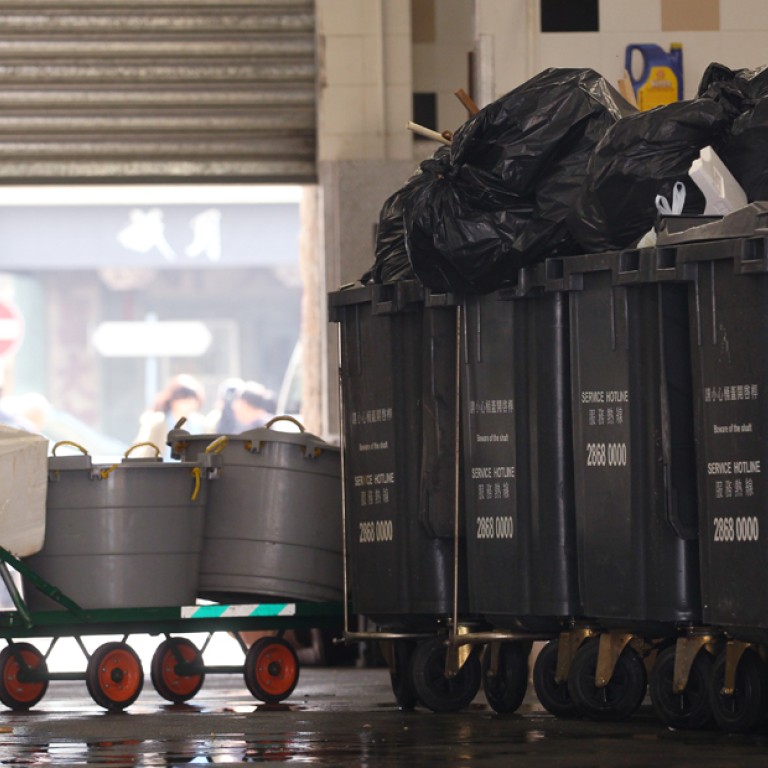
People will face unfair waste charges
Undersecretary for the environment Christine Loh ("Charges one tool for waste management", September 17) responded to my letter ("Charging scheme won't lead to less household waste", September 12), saying we have to make people pay for the waste they generate "based on their own decisions and lifestyles".
Undersecretary for the environment Christine Loh ("Charges one tool for waste management", September 17) responded to my letter ("Charging scheme won't lead to less household waste", September 12), saying we have to make people pay for the waste they generate "based on their own decisions and lifestyles".
I don't "misunderstand": a blanket-charging scheme that penalises everyone is more punitive than an incentive.
I recently visited a large mall to see the waste generated. Four-wheel trolleys with loads of flattened boxes more than a metre high were aggregated at a collection point.
Food waste was being collected at one restaurant in large bins over a metre tall. I don't know if that waste would be compacted, composted, fed to pigs, or sent to the landfill, but the volume was impressive.
In contrast, at our household of four people and four pets, following last Tuesday's three meals, we had some paper packaging, six tins, two bottles, one empty milk carton, and the waste tissue paper from the toilet. The organic waste was less than a saucepan full of apple peels and cores, two banana skins, and a small amount of food from the drain filter in the kitchen sink.
We'd like to recycle the cans and bottles, but our housing estate has no facilities.
If it did, and if it were possible for estate management to make it easy for people to use these facilities while controlling insects attracted by unwashed food containers, much more could be recycled. Of course, if we have to wash the cans and bottles before they are recycled, we'll be using more water to do so, which is another environmental cost of this unfortunate plan.
In short, we can only buy food and household goods packaged as offered. This is not a matter of Loh's consumer "decisions and lifestyles", but a retail environment where people can either buy food and other items as packaged or not buy them at all.
Charging people who are already struggling to make ends meet for disposal of waste the volume of which they largely cannot control will achieve little. It is just more bad public policy.
I repeat: the incentives need to be for manufacturers to provide products packaged in a form that will be environmentally friendly. Perhaps estates could be incentivised to provide recycling facilities, too. But don't frustrate already financially struggling families.
That is not where the controllable waste is coming from.

